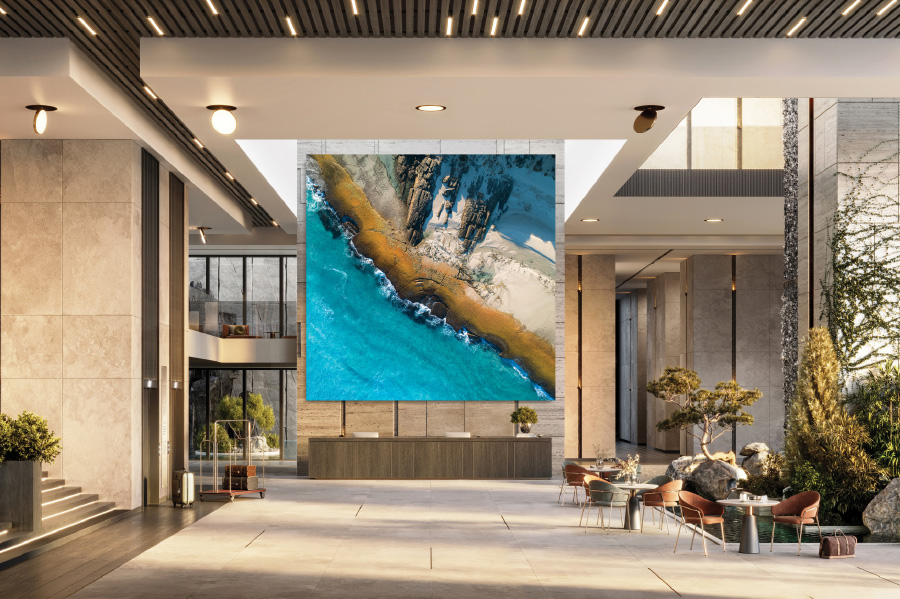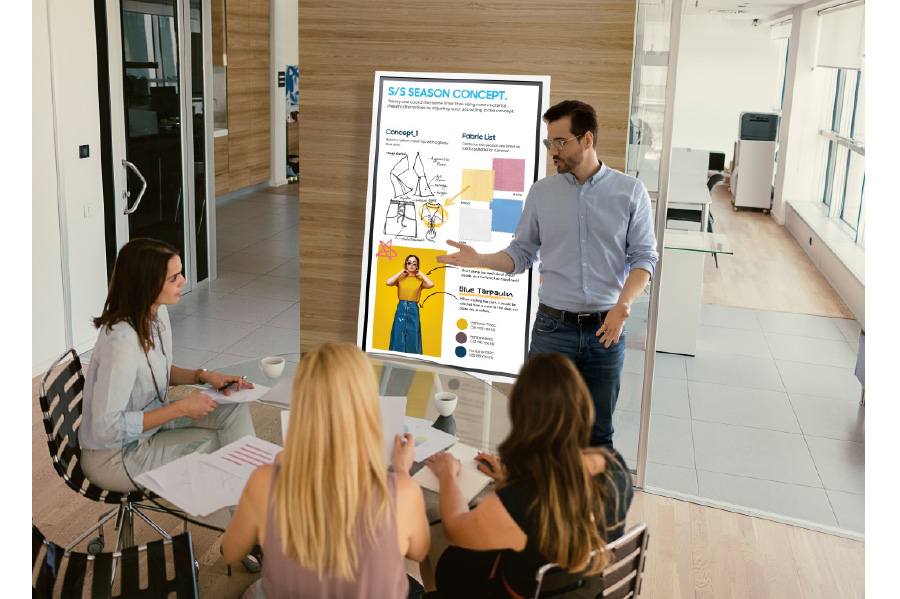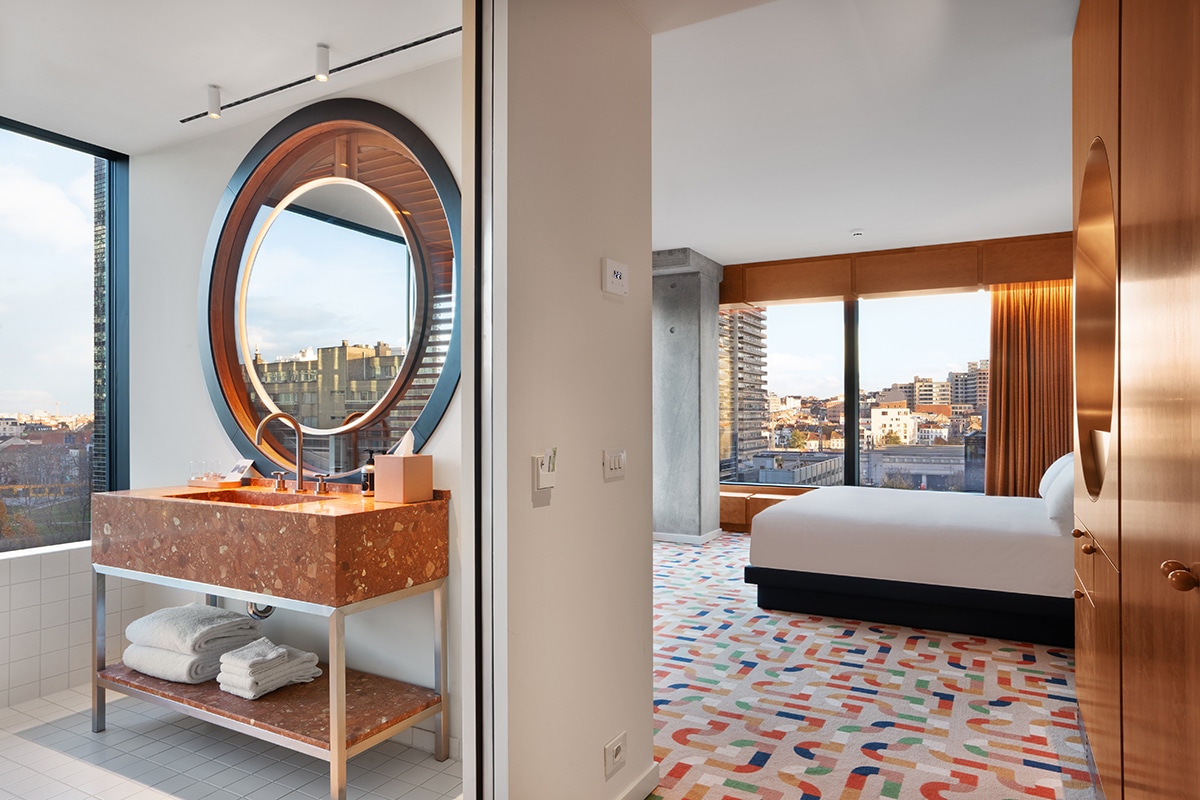
How displays contribute to a unique guest experience
In the hotel industry, TV screens and displays play an important role in creating an optimal guest experience. These technological tools offer hotel operators and their guests a wide range of benefits. Samsung has been a top player in this industry for years. The company invests fully in innovative solutions that take the guest experience in hotels to the next level.
The use of screens and displays covers a wide range of applications. This can range from the familiar TV sets - in all possible formats - to designer PC monitors at the counter to smart communication, both for indoor and outdoor use. "The installation of so-called honesty bars is another trend you see more often," says Evert Van Camp, Director Display Division Benelux at Samsung. "Then a self-order kiosk is obviously also a solution. Samsung can provide customised products within each category. Together with the right partner, we provide the corresponding support for integration and after-care. In this way, we help hotels take a more targeted approach to their communication with customers, increase customer satisfaction and strengthen the hotel brand."

Wide application
So screens can be used in a variety of ways. Evert outlines some common applications: "Of course there are the hotel TVs with central management system, which allow hotel guests to view hotel menus, welcome information and a lot of additional information. Many hotels also install digital information boards in their lobby, corridors or other common areas to inform guests about such things as weather forecasts, public transport timetables, places of interest in a nearby city or traffic density in the region. Interactive kiosks are also becoming increasingly popular, for checking in and out or making reservations, for example. Although human contact at the reception desk will always remain important."
A screen as the best solution in the meeting and training room is impossible to imagine today. It replaces the projector, with interactive capabilities. The digital flipchart has become an indispensable feature. Closing curtains and holding meetings in the dark with a paper flipchart as an extra tool, after which the workshop's business information remains in the room or has to be photographed frequently, is a thing of the past. By the way, you can integrate these displays perfectly with audiovisual systems to enable presentations and video conferences.
Menu and order screens, where guests view the restaurant menu on screen, select dishes and place their order directly, is another interactive application that boosts service efficiency. And also wayfinding-screens in large hotels - with maps, navigation instructions and even personalised routes - are gaining in importance.
Bespoke hotel solutions
By making targeted investments in screens and displays and seamlessly integrating them into their interiors, hotels can exceed their customers' expectations and uniquely position themselves among competitors. "From cosy or premium boutique hotel to large business hotel, in every property, the Samsung team, together with its partners, thinks along with the hotel operator to link the pursuit of maximum return on investment with a modern look and positioning," Evert points out. "With every customer in the hospitality sector, we consider how our digital solutions can contribute to a personalised customer experience."
"In addition, our screen and display solutions play an important role in improving the productivity and efficiency of hotel staff," confirms Evert. "For example, interactive displays in hotel lobbies allow guests to quickly and easily look up information and use self-service options, reducing waiting time at reception. With just a few screen clicks, guests can, for example, check in and out, make restaurant reservations or view shuttle service departure times. The result? Hotel staff are freed up extra time to perform other tasks that really add value to hotel guests."

Streamlined communication
Easier communication is thus one of the benefits of professional screens and displays. "You can let guests view important information, such as events, facilities, menus and offers, in real time," Evert explains. "This reduces the need for paper communication carriers, which is also a lot more environmentally friendly and sustainable. You can also update the screen information quickly, so you always provide your guests and visitors with correct information."
Other benefits include strengthening hotel brand identity and streamlining operational processes. "By displaying attractive visual content, such as atmospheric images of the accommodation and nearby attractions, hotel operators convince potential guests and pique their interest. You can also use digital displays for personalised messages and offers to guests based on their preferences and previous interactions. In terms of more efficient operational processes, advanced display systems give hotel employees easy access to internal communications, schedules and other important data. This promotes internal collaboration, increases efficiency and contributes to a more pleasant working environment, keeping employees on board longer."■



